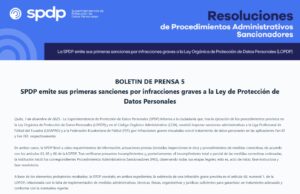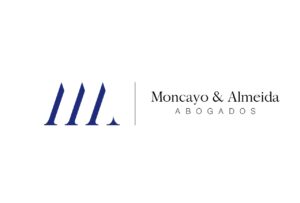Dentistry, as an essential branch of the health sciences, is subject to a particularly rigorous regulatory framework regarding ethical and disciplinary matters. Dentists may be subjected to these types of proceedings that compromise their reputation and professional practice. This article examines the foundations, scope, and risks inherent to the dentist’s ethical and disciplinary responsibility, based on the Code of Dental Ethics (Law 35 of 1989) and the most recent ruling of the Constitutional Court in Ruling C-354 of 2022, highlighting the need for preventive and specialized legal support in these types of proceedings.
Law 35 of 1989 establishes the ethical regime applicable to dentistry in Colombia. This law regulates the guiding principles of professional practice, the relationships between dentists and their patients, colleagues, institutions, and society, as well as ethical violations, the disciplinary procedure, applicable sanctions, and the competent authorities for their prosecution. Dentistry, due to its impact on public health, requires its professionals to act with high scientific, technical, and moral standards.
Among the main conducts subject to sanction are: failure to comply with the duty to provide information, performance of unprescribed treatments, care without the patient’s consent, failure to obtain informed consent, acts of disloyalty toward colleagues, unauthorized intervention in ongoing treatments, misleading advertising, and practicing the profession without complying with the enabling legal requirements. These violations, in many cases, are not due to malicious intent, but rather to carelessness, disorganization, or lack of knowledge of the applicable regulatory framework. This reality highlights the importance of having permanent and preventive legal advice as an essential strategy to mitigate legal risks in professional practice.
The Dental Ethics Tribunals, in fulfilling their public function, are responsible for hearing and deciding disciplinary proceedings against professionals. This process can be initiated ex officio or by complaint. The sanctions contemplated by the Law range from a private reprimand to the most serious, which is suspension from professional practice for a period of up to five years.
In Ruling C-354 of 2022, the Honorable Constitutional Court ruled on the constitutionality of Article 79 of Law 35 of 1989, which establishes sanctions for violations of the Code of Dental Ethics. The article in question states that the Professional Ethics Tribunal, depending on the severity of the violations and their recurrence, may impose the following sanctions: private reprimand, censure, suspension from the practice of dentistry for up to six months, and suspension from the practice of dentistry for up to five years. The Court concluded that this provision does not violate the principle of legality, since the basic prerequisites of due process are met. These prerequisites, in the disciplinary sphere, must guarantee: a description of the basic prerequisites of typical sanctionable conduct, regulatory references or determinable elements in the case of non-discriminatory offenses, clear and precise criteria for classifying the conduct, sanctions and minimum guidelines for their imposition, and procedures that ensure compliance with the minimum guarantees of due process.
The Honorable Court also identified that the challenged provision contained two internal criteria that guide the application of sanctions: the severity of the violation and repeat offenses. Furthermore, it recognized the existence of external criteria, provided for in the Code of Administrative Procedure and Contentious-Administrative Matters (CPACA), that must be considered when graduating the sanction, such as: the damage or danger caused to the protected legal interests, the economic benefit obtained, and repeat offenses, among others.
The practice of dentistry in Colombia entails an ethical responsibility that transcends the clinical practice and encompasses rigorous compliance with ethical standards. The current context requires professionals to be not only technically trained but also legally supported, especially in a preventive manner. The implementation of protocols and the proper management of informed consent are essential tools for mitigating legal risks and ensuring the integrity of professional practice. Given the complexity of ethical and disciplinary processes, specialized legal support is no longer an option but a strategic necessity for defending the interests of dentists, especially to guarantee due process.







